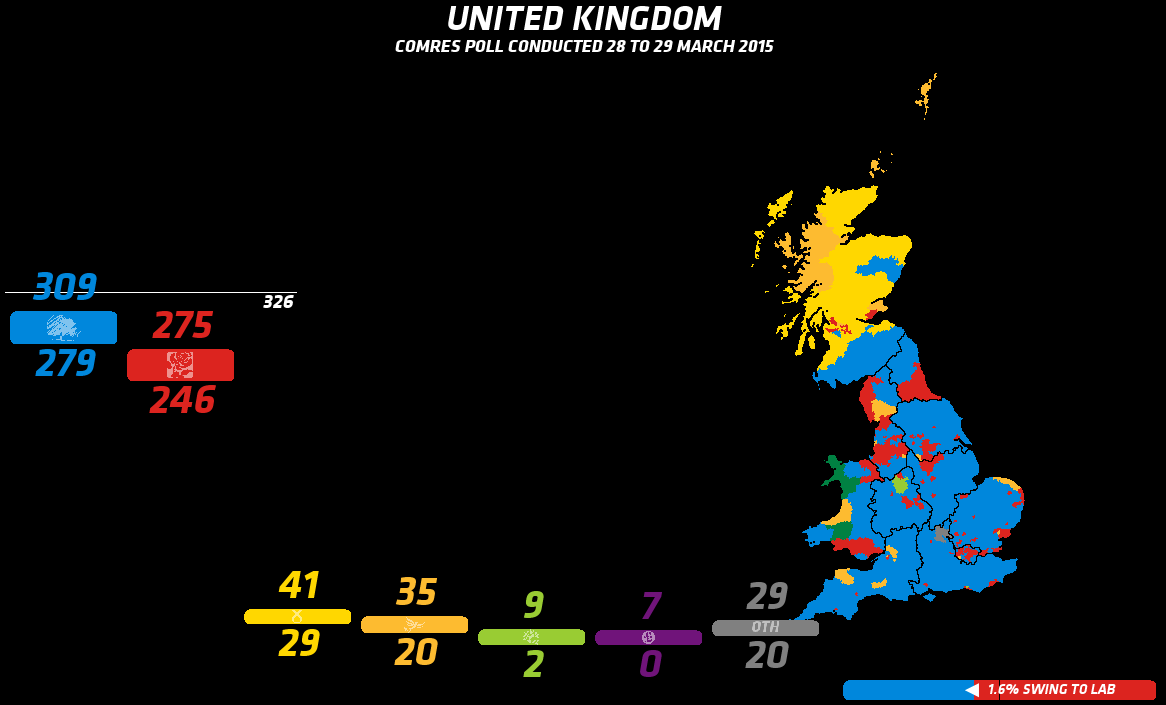Yesterday saw the release of the first two opinion polls since last week's leaders' programme on Sky News and Channel 4. The first poll was conducted by YouGov and published in the Sunday Times. It suggested that Labour had a four-point lead, which would give it a choice in terms of who it could turn to in order to govern.
Later that evening, a second poll was released by the Daily Mail and ITV News conducted by Comres. This poll showed a four-point lead for the Conservatives, which would give them a shot at forming another government.
Two polls, conducted around the same time, showing two different stories.



